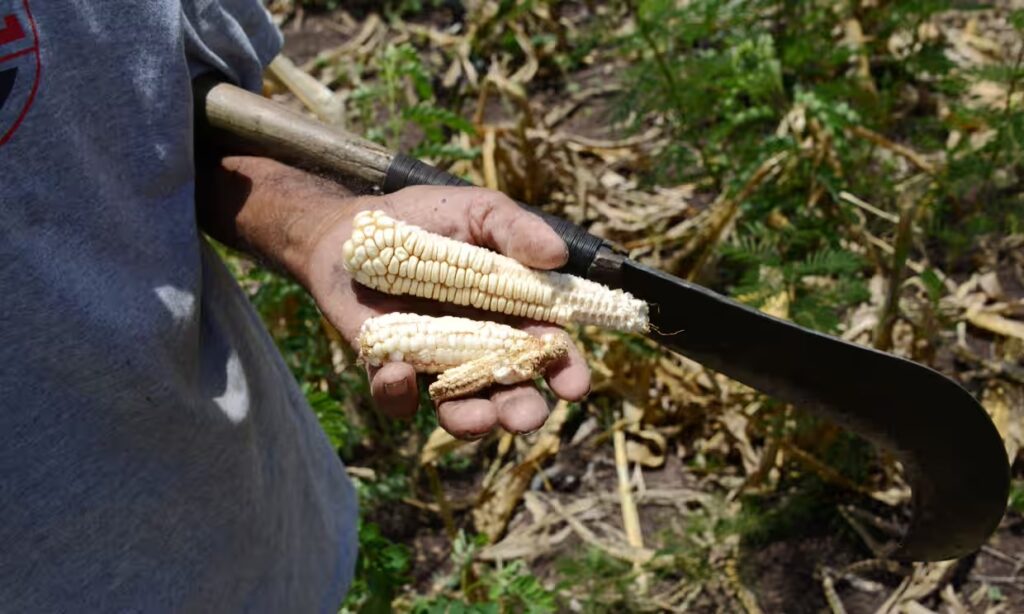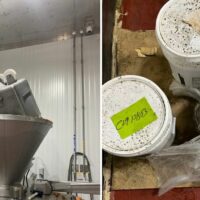
Image Credit: The Guardian
Every week we track the business, tech and investment trends in CPG, retail, restaurants, agriculture, cooking and health, so you don’t have to. Here are some of this week’s top headlines.
In today’s evolving landscape of the food industry, a recent report reveals staggering global health and environmental costs, amounting to a whopping $10 trillion annually. A significant portion of this figure, approximately $7.3 trillion, is attributed to health conditions stemming from inadequate diets, such as diabetes and heart disease. Meanwhile, Walmart is making waves with its ambitious “Regenerative Foodscape” initiative, marking a noteworthy departure from its traditional low-cost model. This shift, combined with substantial investments by the Walton family in regenerative agriculture, has the potential to reshape the marketplace.
In other news, we’ve wrapped the first season of our podcast in partnership with AgFunder: New Food Order, a nuanced investigation into the business of tackling our climate and social crises through food and agriculture. Read all about why we launched the podcast, and be sure to subscribe and share!
Our newsletter takes a lot of time and resources to produce. Make a one time or monthly contribution to help us keep it going. Whether it’s $5 or $500, every bit helps and shows us that you value our work.
1. Global Health and Environmental Costs of Food Industry Are $10T a Year – The Guardian
Conditions such as diabetes and heart disease, the consequence of poor diets, account for $7.3t.
2. Walmart’s ‘Regenerative Foodscape’ – Civil Eats
Walmart’s efforts to redefine itself as a regenerative company are at odds with its low-cost model, and combined with the Walton family’s vast investments in regenerative agriculture, have the potential to remake the marketplace.
3. Beyond Meat Slashes Workforce As Business Model Is Under Fire – Food Dive
The plant-based giant continues to face headwinds as consumers prioritize affordability. It announced job cuts of 19% of its workforce.
4. How Israel’s Food Tech Sector Is Handling Upheaval – Food Dive
The country has been a hotbed for the tech sector, especially for food, but the Israel-Hamas war has put employee engagement and product development initiatives on hold.
5. Visvires New Protein Rebrands As Clay Capital, Closes $145M Second Fund – AFN
Clay Capital plans to invest in up to 15 companies in the new fund, from early stage and series A through to growth stage.
6. Ocean-Based Startups Ride a Wave of Funds Seeking Opportunities in the Blue Economy – Impact Alpha
The number of ocean-focused funds has quadrupled since 2018 and capital invested in the sector has more than quintupled from $700m in 2021 to close to $4b in 2023.
7. Cigarette-Style Climate Warnings on Food Could Cut Meat Consumption – The Guardian
Durham University research found warnings of environmental or health impacts reduced choice of meals containing meat by 7-10%.
8. What the Heck Is Going On with Sweetgreen? – Fast Company
The money-losing salad chain is betting on robotic automation while otherwise sounding like every other fast food chain as it tries to turn around its business.
9. New Singapore Food Safety Bill to Offer More Clarity for Novel Foods Like Cultivated Meat – Green Queen
Singapore is working on a Food Safety and Security Bill that would offer greater clarity on regulatory frameworks for novel foods like cultivated meat and help prevent foodborne illnesses like the ones suffered from raw seafood.





